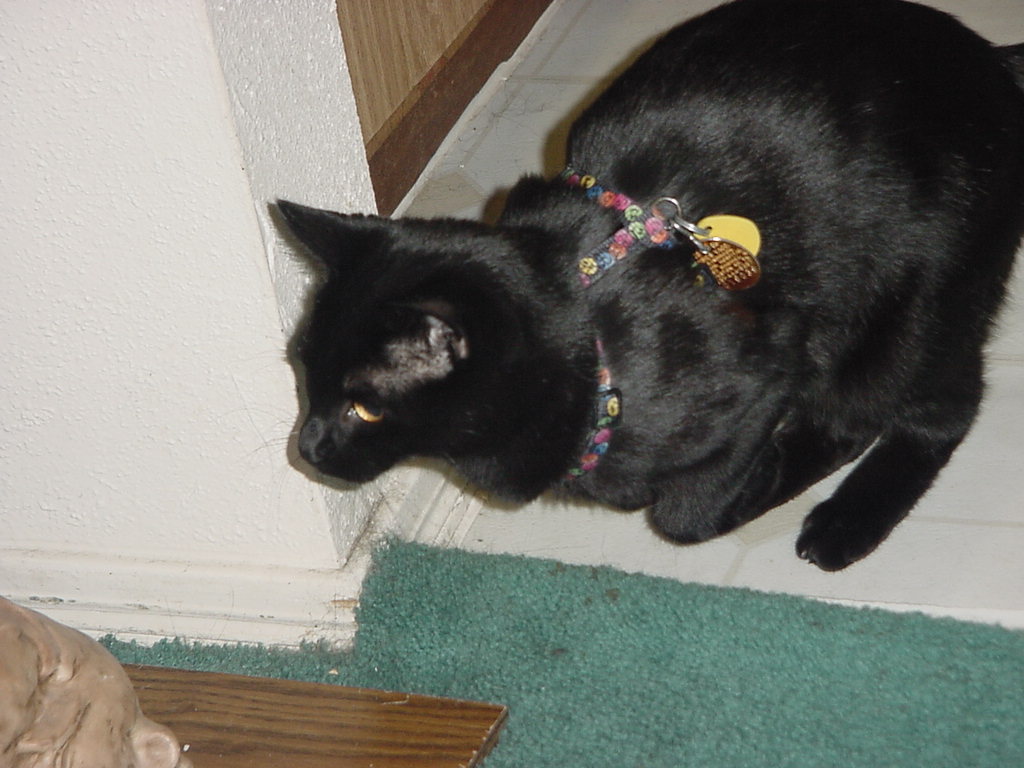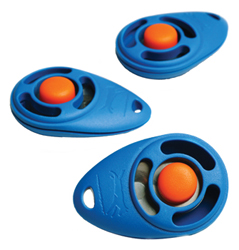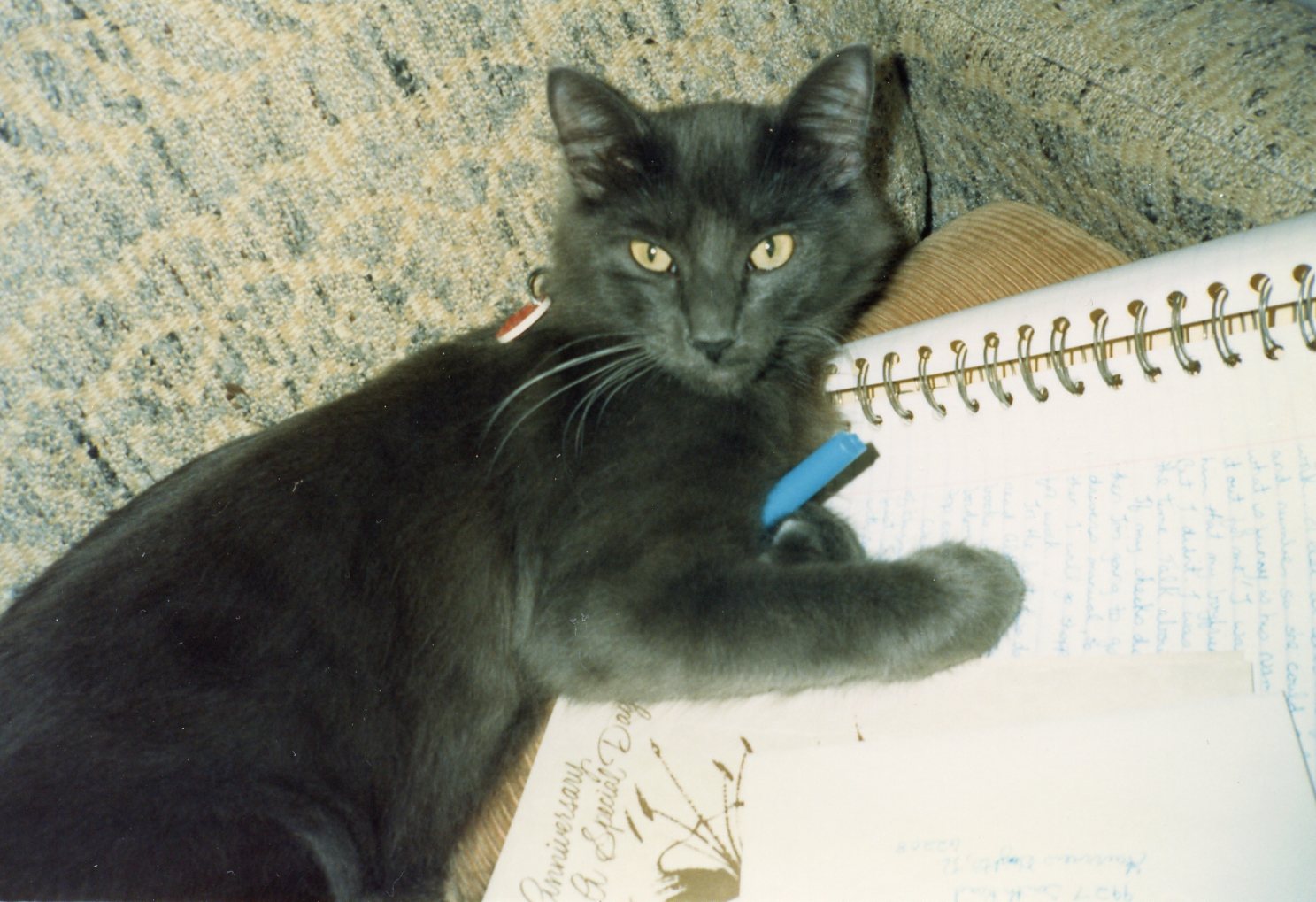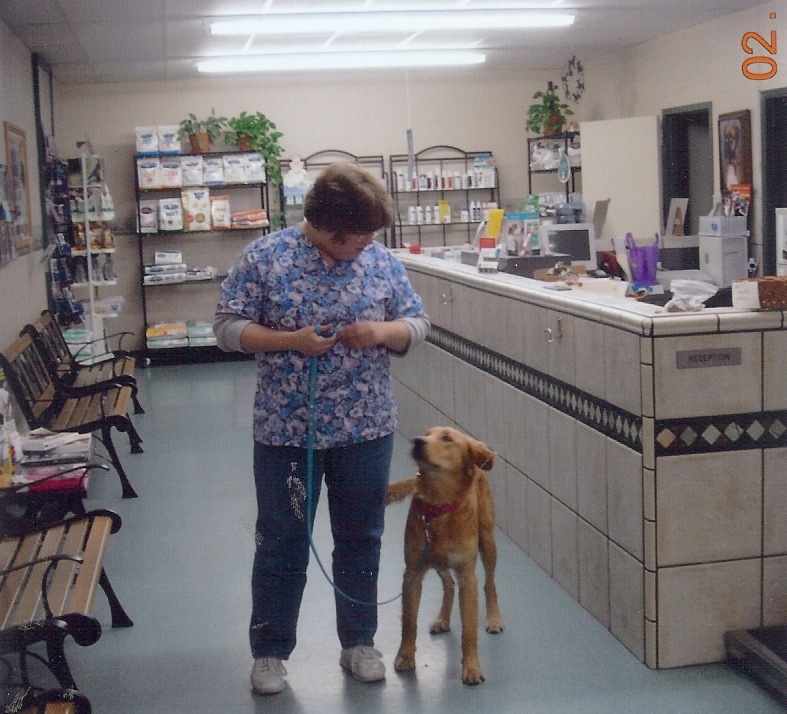Kitty Terrorists
Or
My Kitten Plays too Rough
If playing with your kitten evolves from peek-a-boo to professional wrestling in a matter of seconds, follow these tips to keep playtime interesting and reduce the number of trips to the first-aid kit. Cats incorporate a variety of behaviors into their play, such as exploratory, investigative, and predatory behaviors - skills they would normally need for survival.
As you've probably already learned, kittens like to explore new areas and investigate anything that moves, and may bat at, pounce on, and bite objects that resemble prey. It's not always easy for cats to draw the line between acceptable play and overly aggressive behavior, so play-motivated, aggressive behaviors are common in young, active cats less than two years of age, and in cats who live in one-cat households.
Kittens learn how to inhibit their bite from their littermates and their mother. A kitten who is separated from her family too early may play more roughly than a kitten who has had more valuable family time. In addition, if humans play with a young kitten using their hands and/or feet instead of toys, the kitten is liable to learn that rough play with people is okay. In most cases, it's not too difficult to teach your kitten or young adult cat that rough play isn't acceptable. Here are some tips:
Encourage Acceptable Behavior
Redirect your kitten's rough behavior onto acceptable objects like toys. Drag a toy along the floor to encourage your kitten to pounce on it, or throw a toy away from your kitten to give her even more exercise chasing the toy down. Some kittens will even bring the toy back to be thrown again.
You can also try toys that your kitten can wrestle with, like a soft stuffed animal that's about her size, so she can grab it with both front feet, bite it, and kick it with her back feet. This is one of the ways kittens play with each other, especially when they're young. It's also one of the ways they try to play with human feet and hands, so it's important to provide this type of alternative play target. Encourage play with a "wrestling toy" by rubbing it against your kitten's belly when she wants to play roughly - and be sure to get your hand out of the way as soon as she accepts the toy.
Because kittens need a lot of playtime, try to set up three or four consistent times during the day to initiate play with your kitten. This will help her understand that she doesn't have to be the one to initiate play by pouncing on you.
Discourage Unacceptable Behavior
You need to set the rules for your kitten's behavior, and every person your cat comes in contact with should reinforce these rules. Your kitten can't be expected to learn that it's okay to play rough with Dad, but not with the baby.
First try a sharp "OW!" when you feel the kitten's teeth or claws on you and STOP all movement. Praise the kitten when he backs off and continue what you were doing. Be consistent! Never play rough without having a toy between you and the kitten. Be careful what you use as a toy. Playing with the kitten 'under a sheet or blanket' can later lead the kitten to pouncing and biting on your toes while you sleep.
In some cases, you may want to apply taste aversives (like Bitter Apple spray) to your hands. If you have sensitive skin, you can wear gloves and put the aversive on the gloves. The possible disadvantage to this method is that your kitten may learn that "hands with gloves taste bad and those without gloves don't." Remember that aversives will work only if you offer your kitten acceptable alternatives. (Do NOT use essential oils as these can be toxic to your cat.)
Redirect the behavior after using the aversive. After you startle your kitten with the aversive, immediately offer her a toy to wrestle with or chase. This will encourage her to direct her rough play onto a toy instead of a person. We recommend keeping a stash of toys hidden in each room specifically for this purpose.
Withdraw attention when your kitten starts to play too roughly. If the distraction and redirection techniques don't seem to be working, the most drastic thing you can do to discourage your cat from rough play is to withdraw all attention. She wants to play with you, so if you keep this limit consistent, she'll eventually figure out how far she can go. The best way to withdraw your attention is to walk to another room and close the door long enough for her to calm down. If you pick her up to put her in another room, then you're rewarding her by touching her, so you should always be the one to leave the room.
Keep your kitten's nails trimmed, this will prevent razor sharp claws from causing real damage. Trimming young kitten's nails about every 2-3 weeks will prevent unintended scratches.
Please Note: None of these methods will be very effective unless you also give your kitten acceptable outlets for her energy by playing with her regularly using appropriate toys.
What Not to Do
Attempts to tap, flick, or hit your kitten for rough play are almost guaranteed to backfire. Your kitten could become afraid of your hands, or she could interpret those flicks as playful moves by you and play even more roughly as a result.
Picking up your kitten to put her into a "timeout" may reinforce her behavior if she enjoys the physical contact of being picked up. By the time you get her to the timeout room and close the door, she may have already forgotten what she did to be put in that situation. Or if she continues to 'attack' it may make things worse. When using 'timeout,' you may need to be the one to leave if picking your kitten up doesn't stop the rough play. Make sure you pick the kitten up calmly and quietly offering as little 'attention' as possible.
A Note About Aggression: Don't encourage your playful kitten to bite or scratch any parts of your body. Instead, provide appropriate toys for her to bite and scratch. If she continues to bite or scratch you, call your veterinarian, animal shelter, or behaviorist for humane suggestions on how to redirect her behavior to appropriate objects. Also, be sure to thoroughly clean all bites and scratches and apply an antibiotic ointment. If you receive a bad bite, you should seek medical attention immediately.
© 2002. Adapted from material originally developed by applied animal behaviorists at the Dumb Friends League, Denver, Colorado.












Shouldn't Your Pet Have Pawfect Manners?
You can have a well-behaved pet, let me show you how.
Schedule Your Class!(281) 440-6818
judy.pawfectmanners@gmail.com